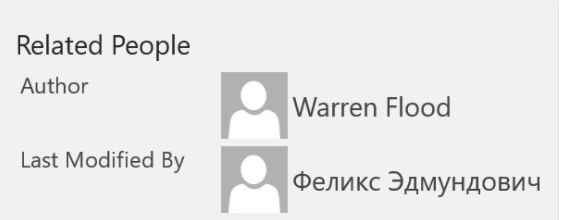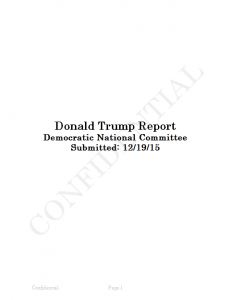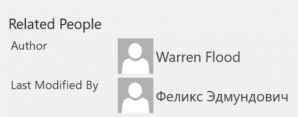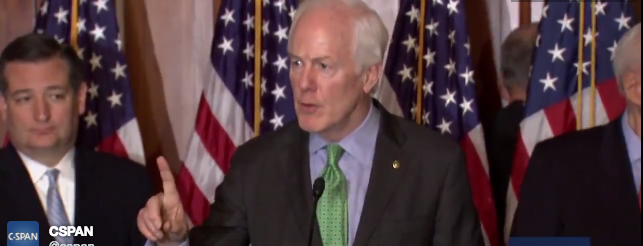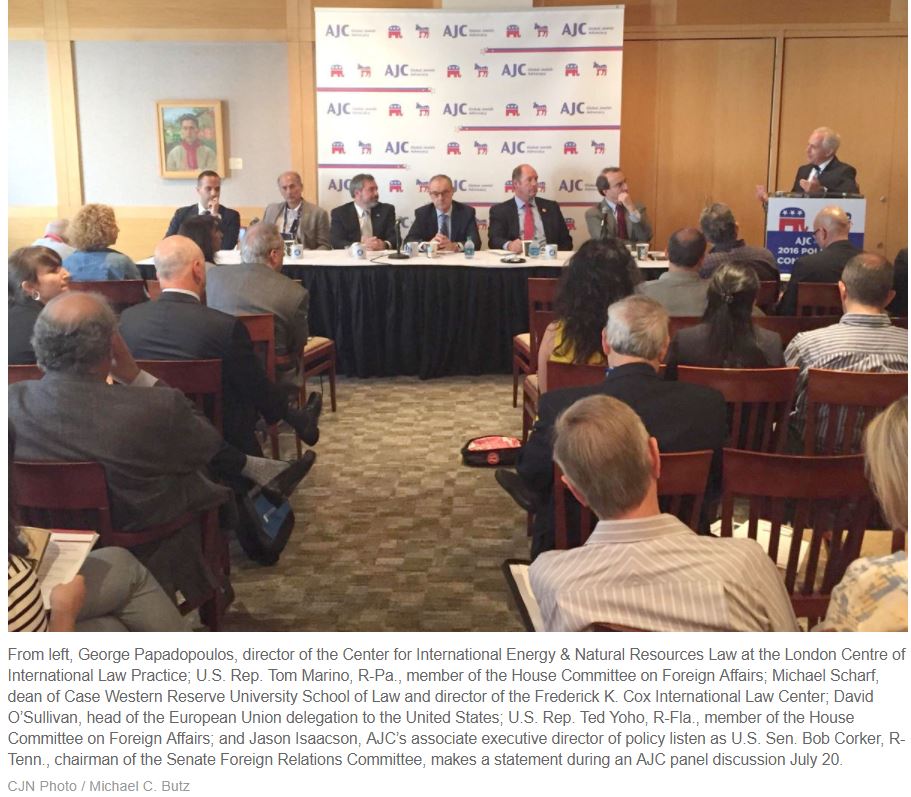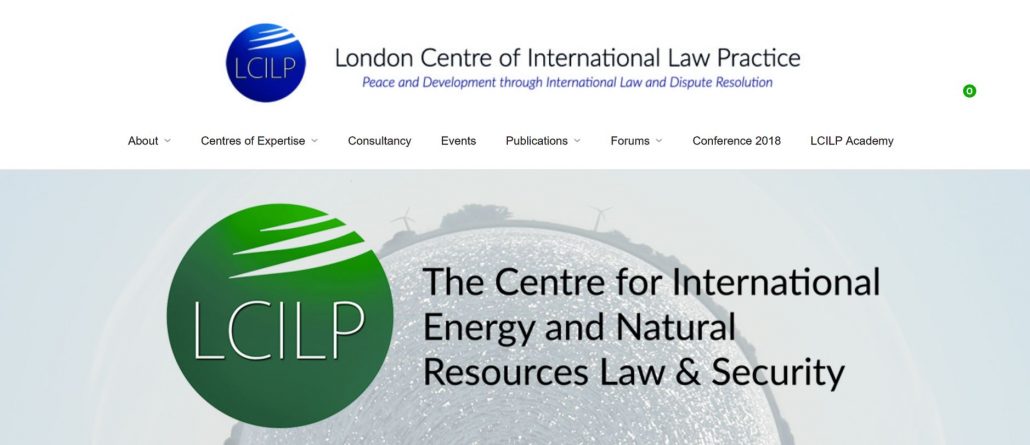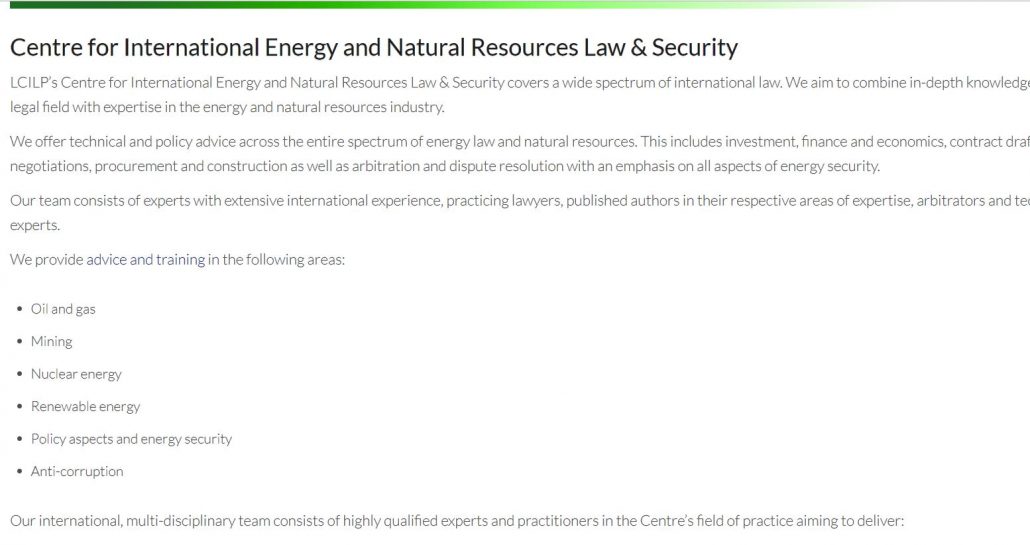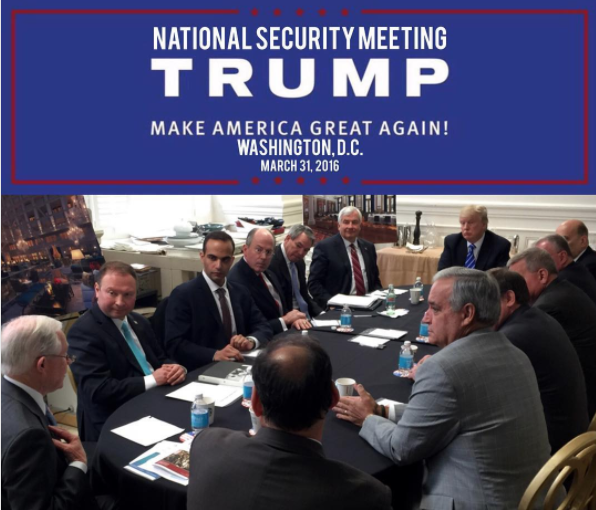JD Gordon Says Any Investigators He’s Been Speaking with, He’s Been Honest
In response to Monday’s server hiccups and in anticipation that Mueller is nowhere near done, we expanded our server capacity overnight. If you think you’ll rely on emptywheel reporting on the Mueller probe, please consider a donation to support the site.
On Monday, I noted that the George Papadopoulos plea deal presented a big problem for Jeff Sessions, as Papadopoulos’ description of a March 31, 2016 meeting made it clear Sessions did know of people reaching out to Russia, contrary to what he has repeatedly stated in sworn testimony. As others caught up to that reporting, and as the Senators that Sessions lied to started pressuring him to fix his past stories, Sessions’ surrogates started pushing back.
At first, that came in the form of anonymous claims that Sessions shot down the idea of setting up a meeting with the Russians. As the week progressed (and as I bitched on Twitter that there was no reason to give anonymity to people who were trying to clear up Sessions’ perjury for him), Trump campaign advisor JD Gordon started going on the record saying the very same things that had previously been said anonymously — sometimes in unmarked updates of the very same articles.
“He went into the pitch right away,” said J. D. Gordon, a campaign adviser who attended the meeting. “He said he had a friend in London, the Russian ambassador, who could help set up a meeting with Putin.”
Mr. Trump listened with interest. Mr. Sessions vehemently opposed the idea, Mr. Gordon recalled. “And he said that no one should talk about it,” because Mr. Sessions thought it was a bad idea that he did not want associated with the campaign, he said.
For the purposes of the Russian inquiry, Gordon is the guy who changed the plank of the Republican platform to be less aggressive towards Russia (one part of the scandal that — as I have written — I think Democrats have overblown).
But longterm readers of this blog may remember that JD Gordon is the guy who, as a press officer covering Gitmo, trumped up a sexual harassment claim against Carol Rosenberg out of her tendency to swear, at him. At one point, Gordon claimed that, “I’ve been abused worse than the detainees have been abused;” at another he accused Rosenberg of “use of profanity that would make even Helen Thomas blush.”
In other words, Gordon has a history of ginning up false claims to try to shut down reporting.
Given Gordon’s rush to explain away the implications of the Papadopoulos plea, I’d like to focus closely on what Sky News bills as an Exclusive interview (for some reason placed with an overseas Murdoch outlet rather than one which might attract more attention here in the states) with Gordon explaining the meeting.
In addition to making the now-familiar claim that Sessions (Gordon’s boss on the campaign) shot down Papadopoulos’ offer to broker a meeting with Putin, Gordon makes a number of other remarkable claims. First, he suggests that, rather than severing any relationship with Papadopoulos (presumably because they were so opposed to the idea of chumming up to Russia), the Trump presidential campaign instead decided to appease a 30-year old nobody so he didn’t embarrass the campaign.
Mr Gordon described Mr Papadopoulos as a “peripheral figure” but someone who “they wanted to appease and not upset, at the same time as reining him in so that he doesn’t embarrass the campaign.”
The only reason you’d have to keep Papadopoulos around and appeased is if he had information that could compromise the campaign. You know, the kind of information he spent 2 months secretly sharing with the FBI?
Gordon then claimed that the reported continued conversations between Papadopoulos and campaign officials about meetings with Russia amounted to Papadopoulos going behind his and Sessions’ backs.
Mr Gordon said he was in a paid role and more senior to Mr Papadopoulos, but claims the 30-year-old advisor went behind his back.
He told Sky News: “I was very surprised that we’re still hearing about it today, because I had no idea that George was going around me, and going around Senator Sessions – his actual chain of command – to pitch this idea to others on the campaign who maybe weren’t there that day, or maybe weren’t paying attention to others.”
Gordon knows nothing and neither does Sessions, I guess.
Gordon then claims that he can’t say about Trump what the stories in which an anonymous source who has said all the same things Gordon has on the record in this interview because he has a Non-Disclosure Agreement.
Mr Gordon said he could not discuss what Mr Trump said when the Russian meeting was raised because of a non-disclosure agreement, but added that the President certainly did not say “yes” to the idea.
Next, Gordon claims to have no idea why Papadopoulos would lie about setting up a meeting because that, in and of itself, wouldn’t have been illegal.
“Which is why it’s such a mystery why George Papadopoulos… would lie to the FBI about his meetings with Russians when they weren’t illegal.
“Maybe a bit shady, but they weren’t illegal.”
Curiously, Gordon doesn’t mention that Papadopoulos’ interlocutors have all the markings of Russian handlers. Nor does he mention that Papadopoulos also lied to hide whether and what he told the campaign about the “dirt” that had been floated, in the form of thousands of Hillary emails. Based on this remarkably incomplete representation of the substance of Papadopoulos’ plea, Gordon insists that allegations Trump cozied up to Russians for help getting elected in exchange for the softening of policies against Russia are a great big hoax.
Mr Gordon described the notion of the Trump campaign colluding with Russia in the 2016 US election as “the biggest hoax in history”.
He said: “There is a lot of smoke and mirrors. The smoke you see is people lighting Trump associates on fire, trying to make a story.”
He blames Hope Hicks, who will soon but has not yet testified to the grand jury, for making the campaign’s discussions with “lots” of Russians look nefarious.
He alleged that Mr Trump’s former press secretary and now White House head of communications, Hope Hicks, had made the situation worse by making unequivocal statements suggesting the campaign had not spoken to Russians when they had.
He claimed the campaign spoke to lots of Russians “but there was nothing nefarious.”
In other words, the guy who claimed a woman who swears sexually harassed him in an effort to shut down a super reporter tells a partial story in an attempt to claim there’s no there there, and blames another woman in the process. Fuck. The same guy claims these meetings and conversations were set up behind his back but admits he knows there were lots of them.
Here’s the part I find most interesting about Gordon’s remarkable interview, though. He dodges when asked whether he has testified or cooperated or what, though makes it clear he has been speaking with investigators.
When asked about whether he was co-operating with the FBI or special counsel Robert Mueller, he said: “I can just say that any investigators that I’ve been speaking with, clearly I’ve been truthful… there’s nothing to hide.
As I noted on Monday — in observing Victoria Toensing’s failed efforts to make Sam Clovis’ testimony to the grand jury look innocuous in advance of his now withdrawn confirmation for a USDA position — and described further to On the Media this week, from this point forward, we should expect those who have been interviewed by the FBI or grand jury to use the press to telegraph what they’ve said, so others can coordinate that story (though usually they do so through hack lawyers like Toensing, not directly). It’s a legal way to compare notes.
I’ve also noted that, at least as of October 18, Jeff Sessions was dodging bizarrely about whether he had been formally asked for an interview. Mind you, that was over two weeks ago, so who knows what has transpired since?
Ah well, if Sessions hasn’t testified yet, he now knows what Gordon told the authorities.
Because I do take Gordon’s comments to be confirmation that he has spoken with the authorities.
Which is interesting given this detail from the affidavit the FBI wrote a month ago explaining why they wanted to seal any notice of Papadopoulos’ plea deal.
The investigation is ongoing and includes pursuing leads from information provided by and related to the defendant regarding communications he had, inter alia, with certain other individuals associated with the campaign. The government will very shortly seek, among other investigative steps, to interview certain individuals who may have knowledge of contacts between Russian nationals (or Russia-connected foreign nationals) and the campaign, including the contacts between the defendant and foreign nationals set forth in the Statement of Offense incorporated into the defendants plea agreement.
If it wasn’t already obvious from the Sam Clovis grand jury timing, the Special Counsel hid the plea from those who might have their own stories to tell about “contacts between Russian nationals (or Russia-connected foreign nationals) and the campaign,” which Gordon admits (while pretending such efforts happened behind his and Sessions’ backs) were numerous, because they planned to “very shortly seek” to lock in those claimed stories.
And those who, like Clovis, appear to have told stories that deviated from the one Papadopoulous told may now be in the same kind of legal pickle that Papadopoulos found himself on July 27, when confronted with evidence that he had lied.
The question is whether JD Gordon is finding himself in the same kind of pickle based on post-Papadopoulos testimony that Clovis appears to be, or whether he just wants Jeff Sessions to know what story he told.


